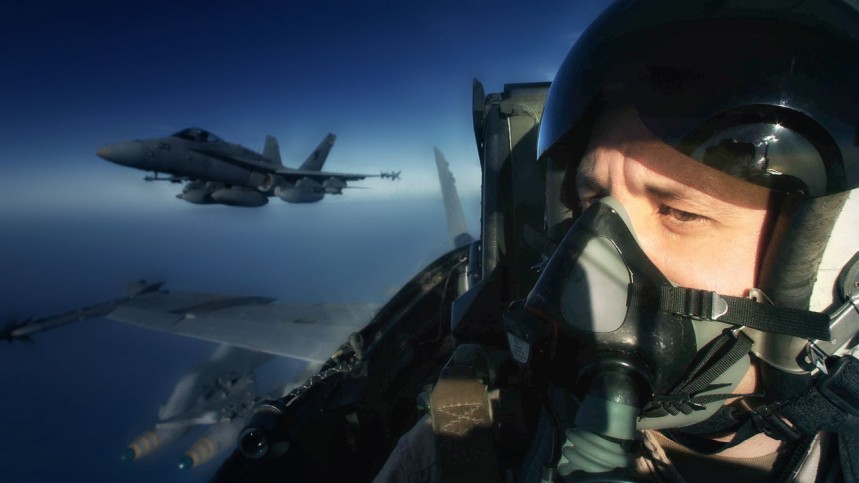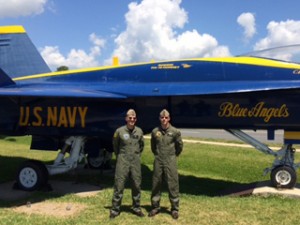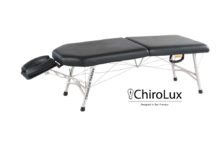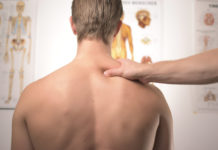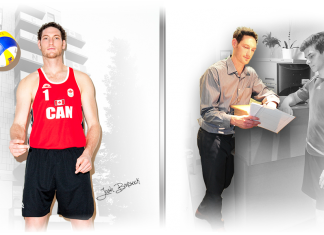Joshua Muffett, D.C., Davenport ’11, is taking his skills as a chiropractor to a new level. Dr. Muffett, a lieutenant serving in an active duty position with the United States Navy, is currently training as an aerospace physiologist.
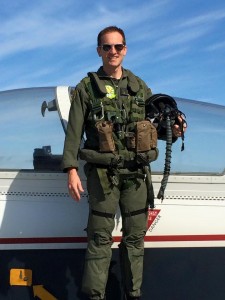 “As an aerospace physiologist my role is to educate Naval, Marine and Coast Guard aviators on the physiological stresses of flight,” says Dr. Muffett. “This is accomplished through briefs and multiple high-risk training exercises. We initially instruct and train at an aviation survival training center and are later on attached to a Navy or Marine flight squadron, be it prop planes, jets or helicopters. It’s the physiologist’s goal to assess any physiological problems the pilots are experiencing with their specific aircraft, gear or equipment and find ways to improve it.
“As an aerospace physiologist my role is to educate Naval, Marine and Coast Guard aviators on the physiological stresses of flight,” says Dr. Muffett. “This is accomplished through briefs and multiple high-risk training exercises. We initially instruct and train at an aviation survival training center and are later on attached to a Navy or Marine flight squadron, be it prop planes, jets or helicopters. It’s the physiologist’s goal to assess any physiological problems the pilots are experiencing with their specific aircraft, gear or equipment and find ways to improve it.
In early 2013, Dr. Muffett had been approached by a friend—a Navy pilot—who told him about a chiropractor who was in his friend’s squadron as an aerospace physiologist. Intrigued, Dr. Muffett did some research and decided it was something he would like to pursue. It wasn’t until after he applied for the position that he realized how competitive it was. It took over a year and a half for him to be selected. He was sworn in on Aug. 1, 2014, as an officer in the U.S. Navy and began the program.
Along with Dr. Muffett, there are three exercise physiologists, a medical doctor and a doctor with a Ph.D. in neuroscience going through training.
“There are six or seven other chiropractors who are currently serving as aerospace physiologists as well,” says Dr. Muffett. “The community is very small. There are about a hundred aerospace physiologists total in the entire Navy.”
Though he’s not currently in practice (his position is full-time and very demanding), he keeps his chiropractic license active. “I use my chiropractic background and expertise every day and apply it to better prepare pilots for what they have to deal with in the aircraft,” he says.
Source: Palmer College of Chiropractic


